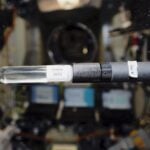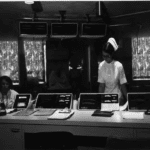ResQPOD
Inducted In: 2008, Health, Medicine
Collaboration between NASA, the United States Army and private industry led to both significant improvement and an important new application for a remarkable medical device called ResQPOD. Successfully used by NASA to treat orthostatic intolerance – a condition of suddenly lowered blood pressure that occurs upon rapid reentry into Earth’s atmosphere – ResQPOD quickly increases blood flow to the brain to more safely reacquaint astronauts with the effects of gravity. Available to the public ResQPOD improves circulation in patients suffering cardiac arrest and other high-risk conditions attributed to low blood pressure.
According to the American Heart Association, 900 Americans experience sudden cardiac arrest every day, with 95 percent dying before they reach the hospital. Improving blood flow to the heart and brain until the heart can be restarted is critical to survival. ResQPOD has proven to provide significant improvement in cardiac output and blood flow compared to conventional resuscitation techniques. NASA input and research was crucial in obtaining U.S. Food and Drug Administration clearance and American Hearth Association recognition of ResQPOD as a Class IIa Impedance Threshold Device.
As such ResQPOD is the highest recommended adjunct in the association’s guidelines for CPR and carries a higher recommendation than any medication used to boost circulation in adults suffering cardiac arrest.
ResQPOD has already helped increase the number of cardiac arrest patients delivered alive to hospitals by as much as 50 percent and is even helping our Armed Forces save lives on the battlefield.
Produced by Advanced Circulatory Systems, ResQPOD is another outstanding example of space technology saving lives here on Earth.
Related Technologies

Bubble Detector
Inducted In: Featured, Health, Public Safety
Canada’s Bubble Technology Industries (BTI) created the Bubble Detector to detect and record levels of neutron radiation exposure to humans. The detector is a small vial about the size of your thumb. It is small enough and portable enough to…

Apollo 70 Cardiac Care Monitoring System
Inducted In: Featured, Health, Medicine
Founded in 1958, Spacelabs Healthcare approached NASA with their concept of a real-time system for monitoring astronauts’ vital signs while in orbit, including a telemetry system to simultaneously transmit the data back to Earth. From 1962 to 1967, Spacelabs was…

Programmable Implantable Medication System
A family of biomedical implantable devices have been developed over the past decade which are based on a wide array of space technologies, including battery advances, miniaturized circuitry, digital telemetry, and electronic sensing systems. The initial device was the rechargeable…
